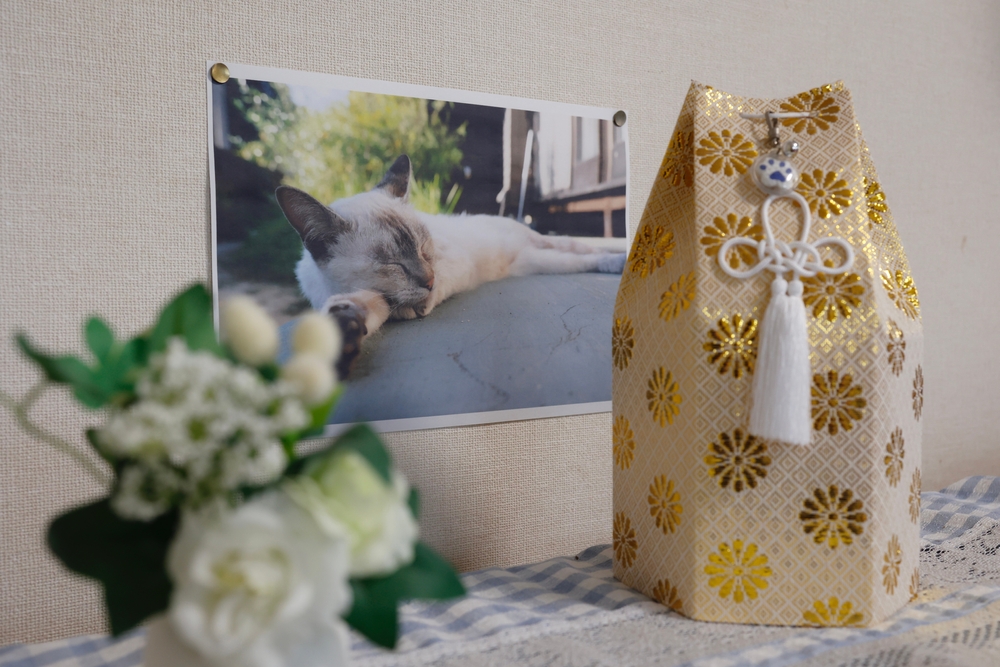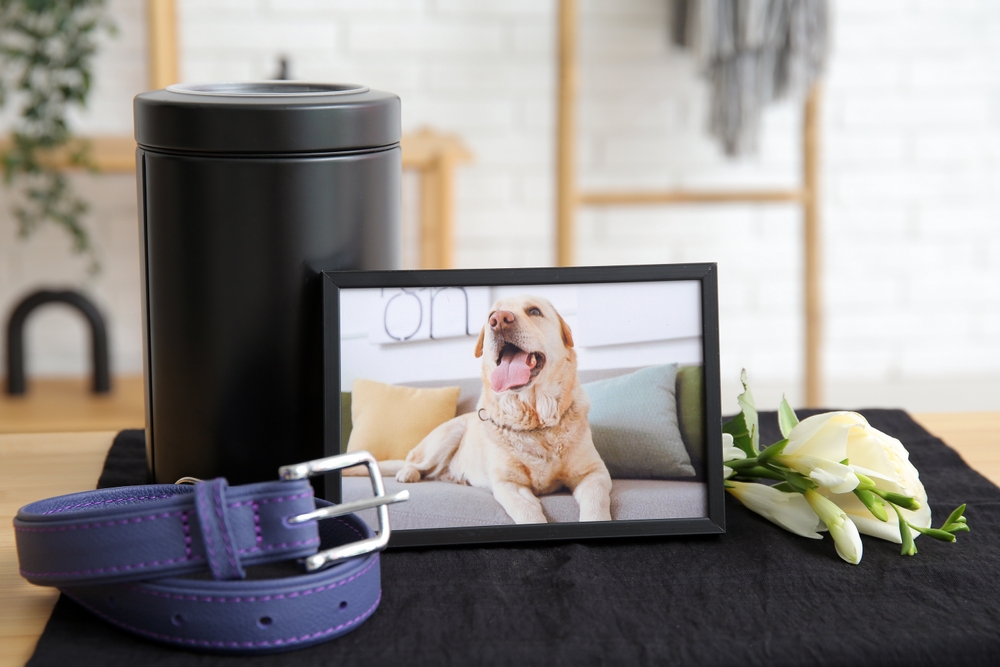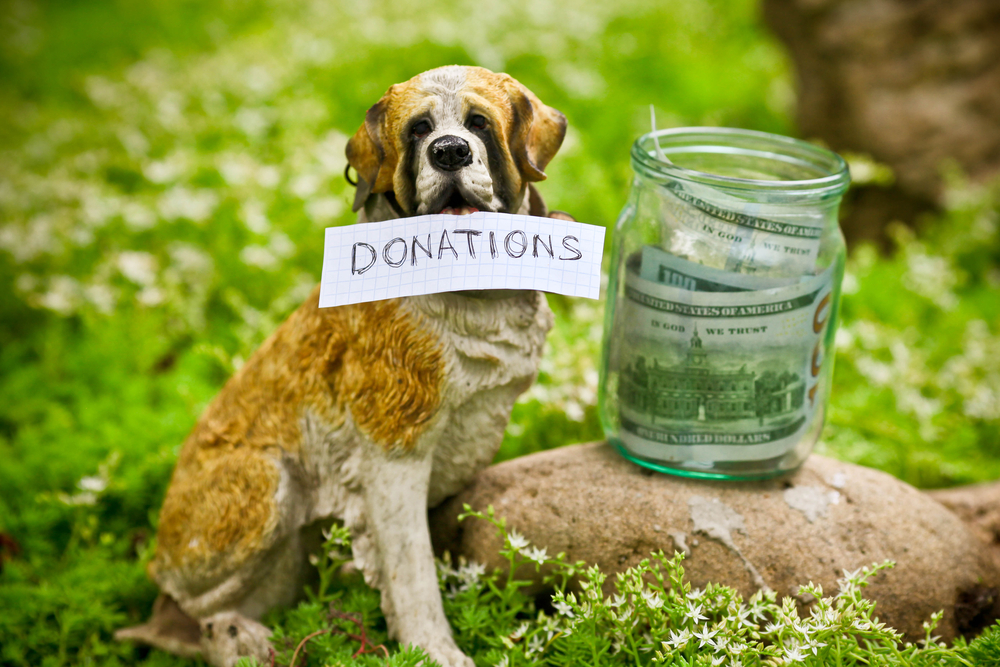Losing a pet is one of the most heart-wrenching experiences we can go through. Whether it’s sudden or after a long illness, the bond we share with our pets is deep and irreplaceable. Here are 15 things to do to help you navigate your grief and find some comfort during this difficult time.
1. Allow Yourself to Grieve

Shutterstock
Grief is not something to rush through. If you need to cry, feel sad, or even sit in silence remembering your pet, it’s okay. It’s natural to feel a range of emotions, from sadness and anger to confusion. Don’t let anyone tell you that it’s “just a pet” or that you should move on quickly. The bond you had is real, and the loss is significant. Allow yourself the space and time to experience all that comes with grieving. Your emotions are valid, and grieving is a process, not something you should suppress or hurry through.
2. Reach Out for Support

Shutterstock
You don’t have to go through this alone. Reach out to friends, family, or even online communities who understand the pain of losing a pet. Talking about your pet, sharing memories, and simply expressing how you feel can help you process the loss. Sometimes people who haven’t experienced it themselves may not understand, but a support group or people who have gone through the same thing can offer comfort. Pet loss support groups are a great place to find others who truly get it and who can offer compassion without judgment.
3. Create a Memorial for Your Pet

Shutterstock
Creating a memorial for your pet can help honor their life and ease your heart. Whether it’s planting a tree, setting up a small memorial in your yard, or framing your favorite photo of them, it gives you a place to remember them. Some people find comfort in making a scrapbook, writing a letter, or even commissioning a portrait of their pet. These gestures help keep their memory alive and can provide a sense of closure. It’s a beautiful way to pay tribute to their place in your life and your heart.
4. Write Down Your Feelings

Shutterstock
Sometimes our thoughts can feel too overwhelming to process in our heads alone. Writing down your feelings allows you to organize your emotions and express the grief you might not be able to say out loud. Start a journal where you write about your pet’s quirks, the adventures you shared, or the quiet moments that meant so much to you. Writing can also help you identify and release emotions that you may not have fully understood at first. Even if it feels messy, it’s part of your healing journey. Plus, it’s something tangible to look back on.
5. Take Care of Yourself Physically

Medium
When grief strikes, it’s easy to neglect your body. But taking care of your physical health can help ease the emotional strain. Try to maintain a healthy routine, even if it’s hard. Eat nutritious meals, drink plenty of water, and get rest. Exercise can be a great outlet for grief; even a short walk in nature can be healing. When you lose a pet, you may find yourself feeling drained, but gentle self-care is an important way to support your emotional recovery. Taking care of yourself helps you regain strength, both mentally and physically.
6. Create a Ritual or Routine for Healing

Shutterstock
Having a ritual or a comforting routine can help you feel grounded as you navigate the grief process. Some people find solace in lighting a candle each night to honor their pet’s memory. Others might take a walk at the time they usually walked their pet, using the space to reflect and connect with their feelings. Whatever feels right for you, creating a ritual can give you a sense of structure and comfort. It’s a way to keep your connection alive while also allowing you the time and space to heal.
7. Talk to Your Veterinarian

Pexels
If you’re struggling with questions or feelings of guilt about your pet’s passing, talking to your veterinarian can offer perspective and comfort. Your vet understands the medical journey your pet went through, and they can explain the circumstances of their illness or death. This may help you make sense of things and alleviate any confusion or second-guessing. Many vets also offer resources for pet loss, including support groups or information about dealing with grief. They’ve seen the bond between pets and their owners, so they truly understand the depth of the loss.
8. Practice Mindfulness

Shutterstock
Mindfulness can be a powerful tool when dealing with the pain of losing a pet. It’s all about focusing on the present moment and letting go of the overwhelming feelings that grief can stir up. Simple breathing exercises or meditation can help center your thoughts, giving you a break from the emotional turmoil. Mindfulness can create space to acknowledge your sadness without letting it consume you. Over time, it can help you process your feelings more peacefully. By practicing mindfulness, you learn to accept grief as it comes, while also nurturing your emotional well-being.
9. Donate in Your Pet’s Name

Shutterstock
Channeling your grief into something positive can bring a sense of peace. Consider donating to an animal shelter, rescue organization, or a cause that was important to your pet’s care. Whether it’s food, supplies, or money, a donation in your pet’s name can help another animal in need. Many shelters even offer programs where you can dedicate a memorial or receive a thank-you note. This act of kindness serves as a tribute to your pet while helping others, and it may provide a sense of comfort knowing their memory is being honored through compassion.
10. Take a Break from Pet Ownership (If Necessary)

FMT
If you’re not ready to adopt another pet, that’s completely okay. It’s important to honor your grief and take the time you need. Some people feel pressure to fill the void left by their pet, but jumping into another pet relationship too quickly can sometimes complicate the grieving process. Take your time to reflect and heal. Maybe, down the road, you’ll be open to adopting again, but don’t rush it. Giving yourself permission to not replace your pet right away allows you the space to truly honor them and work through your grief.
11. Create a Memory Box

Flickr
A memory box can be a deeply sentimental way to keep your pet’s memory close. Collect items that remind you of your time together—favorite toys, a collar, or a lock of fur. Some people add photos, a special blanket, or even the ashes of their pet. This box can be something you revisit on anniversaries or when you need a moment to remember your pet. Having a tangible representation of your pet’s life and love can provide comfort when the sadness feels overwhelming. It’s a way to carry their spirit with you wherever you go.
12. Seek Professional Counseling

Pexels
Sometimes, the grief of losing a pet can be too much to handle on your own. A therapist, especially one who specializes in pet loss, can help guide you through the healing process. Talking to a professional can provide tools for coping with grief, working through feelings of guilt, and finding ways to move forward. Don’t hesitate to reach out for professional help if the grief becomes overwhelming. Pet loss counselors can offer support and guidance, helping you manage your emotions and work toward healing in a healthy, constructive way.
13. Spend Time with Other Animals

Shutterstock
If you’re open to it, spending time with other animals can bring comfort. Whether it’s volunteering at an animal shelter, visiting a friend’s pet, or simply spending time with neighborhood animals, being around other creatures can offer a sense of companionship and connection. Animals have a unique way of soothing us and can help fill the space left by the loss of your pet. It’s not about replacing them, but rather finding peace in the presence of another animal’s energy while honoring your pet’s memory.
14. Reflect on the Joy They Brought You

Shutterstock
While the pain of loss is intense, it’s important to focus on the joy your pet brought into your life. Reflect on the happy memories you shared, from the playful moments to the quiet times together. Reminisce about how your pet made you laugh or how they comforted you during tough times. Keeping those positive memories at the forefront of your mind can help you appreciate the time you had together and bring a sense of peace. You gave each other love, and that will always be a part of you, even as you navigate your grief.
15. Give Yourself Grace

Flickr
Grief doesn’t have a set timeline. There’s no right or wrong way to feel, and there’s no exact point where you “should” be healed. Give yourself grace through this process. There will be good days and bad days, and it’s okay to not be okay for a while. Healing is non-linear, and sometimes the grief will resurface unexpectedly. Trust that, over time, the pain will soften, and the memories of your pet will bring you more comfort than sorrow. Be kind to yourself as you navigate this journey and remember that your grief is a testament to the love you shared.
Losing a pet is never easy, but by taking these steps, you can begin to heal while honoring their memory. Grief takes time, but with love and care, you’ll find ways to keep their spirit alive in your heart.


